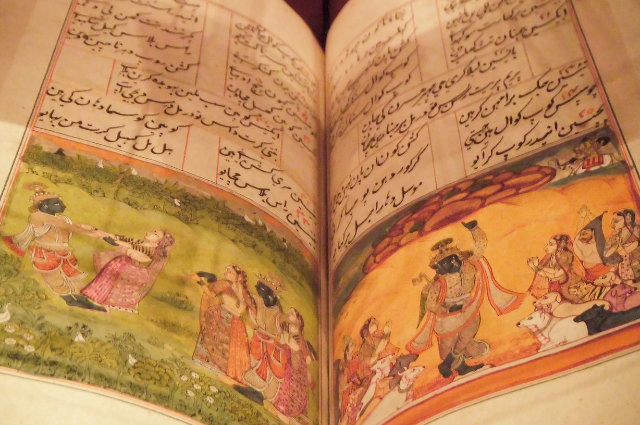
History tends to be written by the victors, in official documents and inscribed on the monuments of the powerful. But what happens when those accounts are lost, consumed by fire, or never had a hope of being? How do we restore the histories of losers, outcasts, or everyday people? The solution isn't in ancient scrolls or burned-down palaces, but in the ordinary language that we speak. Linguas are not only communication modes, but also depositories of history, layered like the geology with layers of political histories of conquests in the past, social arrangements, and cultural interactions. Through linguistic archaeology—digging up the etymology, syntax, and lexicon of a language—hidden political histories become retrievable, rumours of empires long crumbled to dust made audible.
Loanwords constitute the most unmediated form of linguistic evidence. When two cultures meet, especially by conquest or trade, their languages mix. The manner and direction of the borrowing may signal the power relationship of that encounter. Norman French is one of the markers of their impact on English following the Norman Conquest of 1066. For nearly 300 years, the Norman French became the language of the ruling court, government, and law, and Old English was maintained as the language of the conquered Anglo-Saxon population. This governmental dichotomy is fossilised in English words today. The Anglo-Saxon terms for live flesh used in the fields, tended by Anglo-Saxon bondsmen, are of Germanic origin: cow, pig, sheep. But French terms for the cooked flesh consumed at the Norman lord's table are: beef (boeuf), pork (porc), and mutton (mouton). This plain-speaking linguistic bipartite is a true indicator of a two-class society, a political split in which a French-speaking ruling elite overtopped an English-speaking underclass. And so with the English terms for rule—government, parliament, sovereign, justice—they are of French origin for the most part, and they inform us who wielded the right of rule and administer law.
In addition to word loans, names of places, or toponyms, are a gold mine for political history. Place names of rivers, hills, and villages precede documentary records and may tell us who the people were in a region before there was another new political ascendancy. England is a palimpsest of superimposed invasions. The majority of the oldest river names, the Thames and the Avon, have Celtic origins, following the pre-Roman, Brythonic-speaking peoples. The use of the suffix "-chester" or "-caster" in place names like Winchester or Lancaster comes from the Latin "castra," which means camp, indicating that they are Roman-held areas. The dissemination of toponyms in "-ton" (town), "-ham" (homestead), and "-ing" (people of) is Old English, and they reflect the dissemination of Anglo-Saxon settlement and their miniature-scale tribal politics. Later, the Viking raids made their presence felt in the north and east through surnames formed with the suffixes "-by" (village), "-thorpe" (farm), and "-keld*" (spring), like Grimsby or Scunthorpe. By reading off the landscape from its names, we can follow the political boundaries of dead kingdoms and the margin of settlement.
Grammar and syntax themselves are likely to hold secrets of profound political history. The creole language case, where speakers of mutually incomprehensible languages come together, usually under the violent political situation of colonialism and slavery, is compelling. The grammars of Caribbean creoles, for instance, are not just defective replicas of English or French. They are new rule-governed systems trying to preserve structural features from West African slave languages and the vocabulary of the European conqueror. The fact and structure of a creole language itself are evidence of forced migration, power asymmetry, and the incredible human ability to create something new from political catastrophe--new identity and new ways of expressing it.
Moreover, language family research enables reconstructions of prehistoric political expansion and migration. The comparison of existing languages and invoking the laws of historical linguistics enable scholars to reconstruct a hypothetical ancestral language like Proto-Indo-European. Vocabulary that can be reconstructed for this ancient language tells us about the culture of the speakers. The presence of common names for such things as "wheel," "axle," "horse," and "yoke" is proof of a mobile, technology-based culture that more than likely borrowed its language and politics over a long distance from India to Europe in a migration and conquest. The language itself is the overwhelming proof of an expansion of culture and politics that did not leave behind any written record.
Linguistic archaeology is, therefore, a useful instrument in the decolonisation of the past. It gives voice to individuals whose histories were erased or silenced by the ruling powers. The narrative modes, proverb forms, and narrative structure of an indigenous language can uphold a community's memory of the past, their understanding of treaties, and their relationship to the land, even when the official written past has attempted to destroy them. By listening, we can recover a people's own version of their political past.
Each language is finally a museum of human life. Its vocabulary is artefacts, its syntax a reflection of the shape of society, and its phonology a set of information about earlier connections. A linguist, like an archaeologist, carefully sweeps away centuries of debris to examine these artefacts. One word can be the front line, evidence of a lost invasion. One grammatical principle can be the foundation of an erased social structure. A toponym can be the ghost of a withering forest that once was, bestowed by a now-buried people. By reading this living archive, we can reclaim the rich, complex, and often contested political histories that made our world, histories not written on parchment or stone, but on the human voice and transmitted over the centuries in the most intimate of all historical texts: our words.
